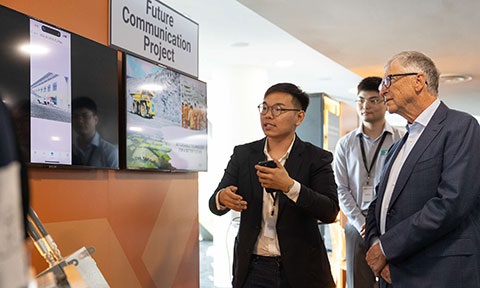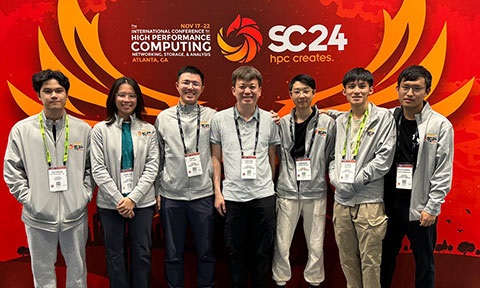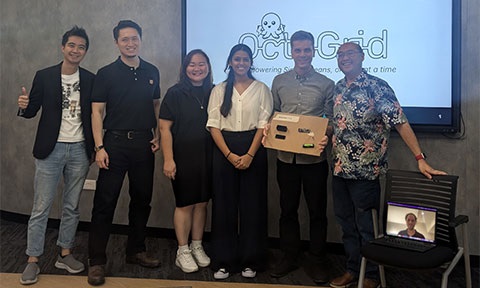SCSE Outstanding PhD Thesis Award 2023
Winner
for contributions to algorithms addressing super-resolution and other low-level vision tasks, with an extension to in-the-wild data.

Dr CHAN Cheuk Kit Kelvin
Image and Video Super-Resolution in the Wild
Citation:
Super-resolution has been a long-standing problem in computer vision for decades. It has wide applications such as old-photo restoration and satellite-image enhancement. Recent methods mostly learn an image-to-image mapping through synthetic degradations,
therefore possessing limited performance. Chan’s thesis goes beyond the conventional approaches and exploits auxiliary information for super-resolution. For image super-resolution, generative priors captured in image synthesis models are
adopted to enrich the textures and details. For video super-resolution, long-term propagation and sophisticated alignment are developed to effectively retrieve information from the entire video. Compared to existing works, Chan’s methods
lead to significant improvements in both output quality and network efficiency. Most importantly, unlike most previous approaches, which focus on synthetic settings, Chan expands his ideas to in-the-wild data, achieving promising performance in
real-world images and videos. His ideas are also applicable in various low-level vision tasks, such as image colorization, compressed video enhancement, video denoising, and video deblurring.
Runner-Up
for contributions to the development of algorithms for neural machine translation especially effective for low-resource languages.

Dr Mohiuddin Muhammad TASNIM
Neural Machine Translation with Limited Resources
Citation:
Apart from extensive utilization in communication, machine translation (MT) is a multi-billion-dollar industry. This dissertation is devoted to enhancing MT quality for low-resource languages. Tasnim studied the problem of modeling resource constrained
MT systems at two levels: word-level and sentence-level MT. His work addresses some challenging problems including the isomorphism issue of word embeddings for different languages, domain mismatch problem in traditional back-translation, and
learning a curriculum schedule of data for machine translation systems. Tasnim not only developed effective learning algorithms that outperformed the state-of-the-art counterparts on various benchmark datasets but also provided a detailed
analysis of the learning algorithms.
Honourable Mention

Dr HUANG Jiaxing
Transductive Transfer Learning for
Visual Recognition

Dr WANG Zheng
Trajectory Data Simplification, Similarity Search and Inference with Deep Learning
Jury 2023
Prof Bo An (Jury Chair)
Asst Prof Lin Guosheng
Asst Prof Luo Siqiang
Asst Prof Yu Han







bc2e4407-0c54-407d-b26e-63010fde466a.tmb-listing.jpg?Culture=en&sfvrsn=6e3ef9fa_1)